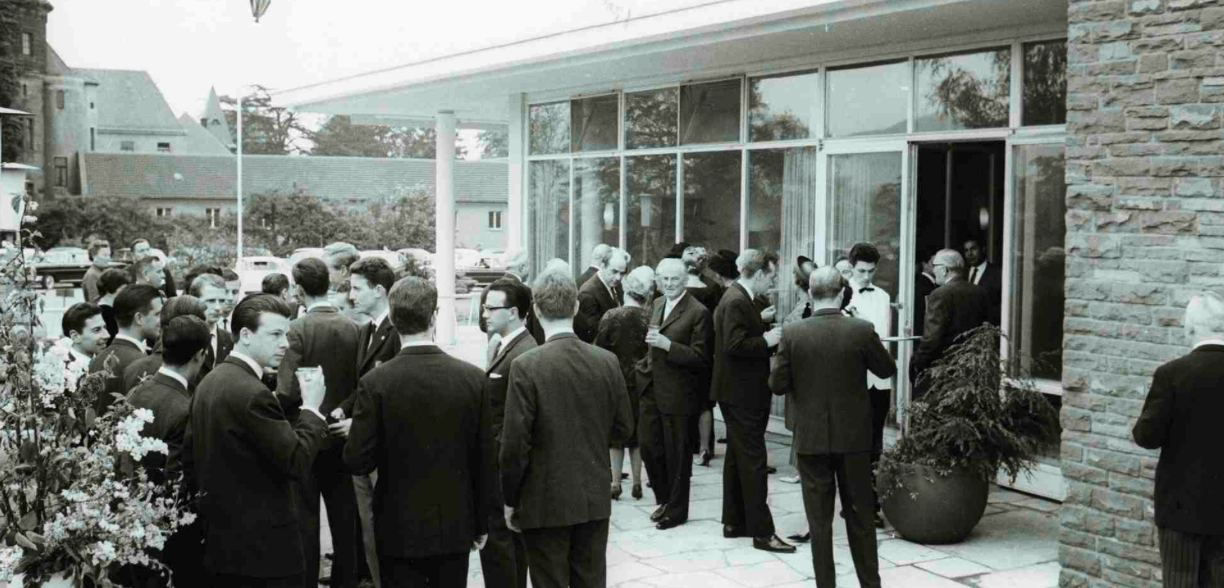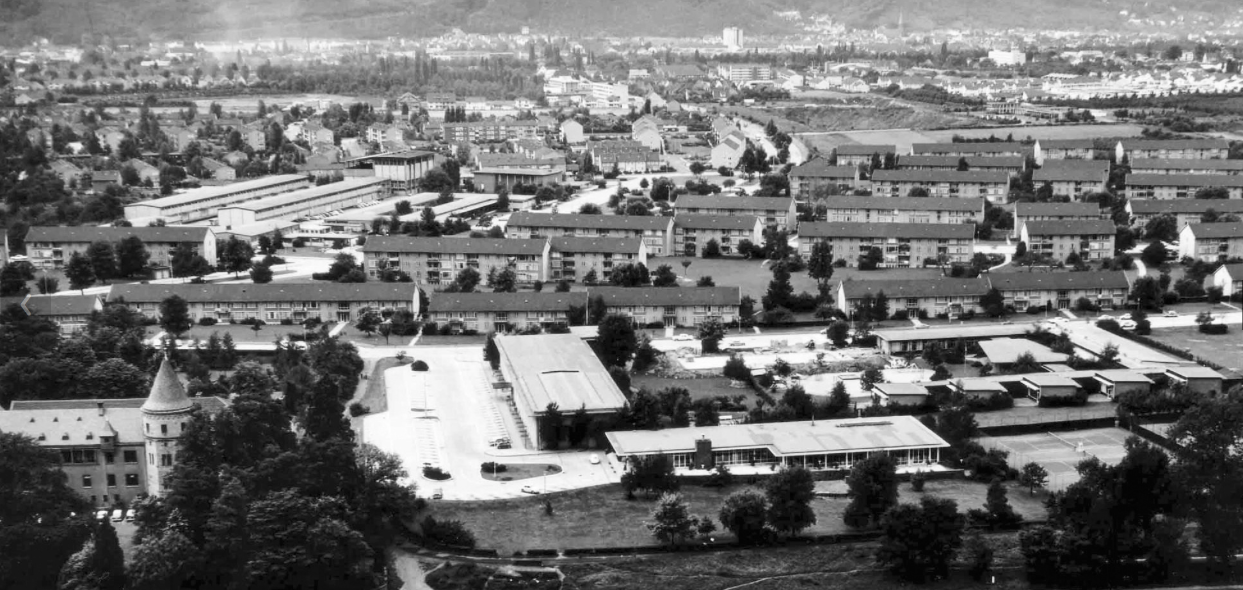
When Bonn became the capital of Germany in 1949, embassies and official representations relocated to Bonn. This mass relocation included the US High Commission (later becoming the US embassy) which had been operating from a base in Frankfurt.
At its zenith, the US embassy in Bonn had over 900 Americans and 600 local staff working in it, and was for many years the largest US embassy in the world. A massive infrastructure program to support embassy personnel and promote the American way of life changed the look and feel of Bonn forever.
What did a big American community need?
Lots of housing, a church, a helipad, its own independent power plant, a kindergarten, a movie theater, a gas station, a post office, and a supermarket. The American Club (officially the American Embassy Club) filled leisure hours and included tennis courts, a swimming pool, a teen club, and a restaurant. In addition to its social role, the American Club became an important meeting place for VIPs and locals. And, of course, a school was needed to educate embassy and diplomat children. The American School on the Rhine (up to age 14) was founded in 1952 and later became the American Elementary School. Until 1971 with the opening of the Bonn American High School, older students were bused during the week to US schools in Frankfurt and Wiesbaden.
The area of Bonn known as Plittersdorf looked and felt much like an American small-town transplant until the federal seat of government officially moved to Berlin in 1999.
And then?
Slowly but surely, Bonn and its American infrastructure changed. The commercial area with gas station, post office, movie theater, power plant, and supermarket was torn down to make way for residential development, lost forever.
Other elements remain today and bear witness to the extensive US presence and influence from the 1950s-1999. Hundreds of units of embassy housing were taken over by a communal real estate company but largely retain their character under historical preservation orders and are much sought-after property. The Stimson Memorial Church passed into the possession of the City of Bonn but is still the site of English-language worship.
Bonn International School resulted from the merger of the American Elementary School, American High School, and British Elementary School. The original school buildings were demolished; however, a new school campus was erected on the same grounds and continues to welcome and educate the international community and host a steady number of American students.
The American Club, formerly the center of Bonn’s social life, fell into disuse and neglect for more than 20 years. A local foundation is now developing plans to rejuvenate this historic landmark into a center for democracy and the arts, connecting back to this building’s illustrious past as a place of exchange and diplomacy.
Memories of encounters with “little America on the Rhine” and physical traces of the past are very much alive today in Bonn and a source of local pride and fond connection.





